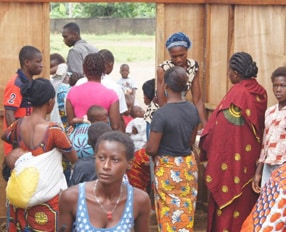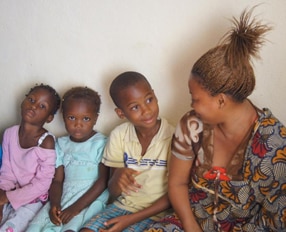
The humanitarian assistance project consists of a “Health care program for the victims of war in the slums of Danga Basfond and Abobo (Abidjan, Ivory Coast)” and is funded by the Community of Madrid. The project is carried out in cooperation with the Association Pour Social Et Le Développement Culturel (ADESC), which since its inception in 1984 is focused on improving the health care, especially in the rural areas.

After the declaration of war in 2002 many people were forced to move up north, to the capital in order to survive. The migrations have caused a chaos in Abidjan as well as the appearance of many slums, without infrastructure and in precarious conditions.
In addition to the consequences of war in Ivory Coast, currently, many areas of the capital as Abobo and Danga Basfond are suffering from the derivatives of the post-election crisis of 2011. These areas are in high need of the health care emergency assistance. Since the elections in late 2010, health centres closed their doors, due to paralysis of their activities with public transport and freight. The increase in population caused by an inflow of immigrants introduced several new epidemics. The population in confronted with subhuman living conditions and a high level of mortality, especially among children and women. Therefore, this project, started in February 2013 aims to provide basic medical care, mainly for the following problems:
- Lack of health care structures, which counteract with the quality in health care service.
- The poverty that disables people to finance their own health care costs.
- Lack of health education, which contributes to the persistence of preventable diseases.
- Lack of hygiene and environmental culture, at household and the community level.

So far, about 1,000 people have benefitted of the following services: medical and drug supplies, vaccination of children for the prevention of childhood diseases; educational training about the means to prevent the transmission of epidemics and the awareness of issues related to health and environment. The project expects to reach about 4,000 beneficiaries.

